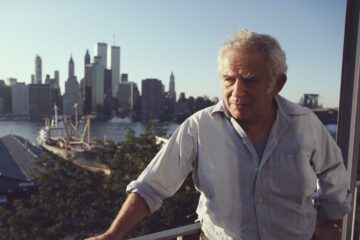Michael Kimmage in TNR:
 Alcove 1 at the City College of New York is surely the most famous lunch table in American intellectual history. No Ivy League dining hall can compete. In the 1930s, a remarkable coterie of students gathered there. (The neighboring alcove, Alcove 2, was a meeting place for students who hewed closer to the party line in Moscow, for the “Stalinists” as they would have been called in Alcove 1.) By now many books and documentaries have been made and written about Alcove 1 and its legacy, which in miniature is the saga of the “New York intellectuals.” They were mostly Jewish, uniformly gifted, and fabulously influential at midcentury. Their history can have the aura of myth.
Alcove 1 at the City College of New York is surely the most famous lunch table in American intellectual history. No Ivy League dining hall can compete. In the 1930s, a remarkable coterie of students gathered there. (The neighboring alcove, Alcove 2, was a meeting place for students who hewed closer to the party line in Moscow, for the “Stalinists” as they would have been called in Alcove 1.) By now many books and documentaries have been made and written about Alcove 1 and its legacy, which in miniature is the saga of the “New York intellectuals.” They were mostly Jewish, uniformly gifted, and fabulously influential at midcentury. Their history can have the aura of myth.
In Write Like a Man: Jewish Masculinity and the New York Intellectuals, Ronnie Grinberg, a historian at the University of Oklahoma, has reconfigured the story of the New York intellectuals. As she notes, many of the most prominent New York intellectuals were not just Jewish—they were men. This circumstance has sociological implications. These intellectuals inhabited and created male spaces like Alcove 1 and mostly male institutions like Partisan Review and Commentary, their pivotal magazines. The writings of Irving Howe, Norman Podhoretz, and Norman Mailer, New York intellectuals all, showed an obsession with masculinity, their own and that of others. They developed an “ideology of secular Jewish masculinity,” Grinberg writes, which was expressed in a style of writing that merged “verbal combativeness, polemical aggression, and an unflinching style of argumentation.”
More here.
Enjoying the content on 3QD? Help keep us going by donating now.
